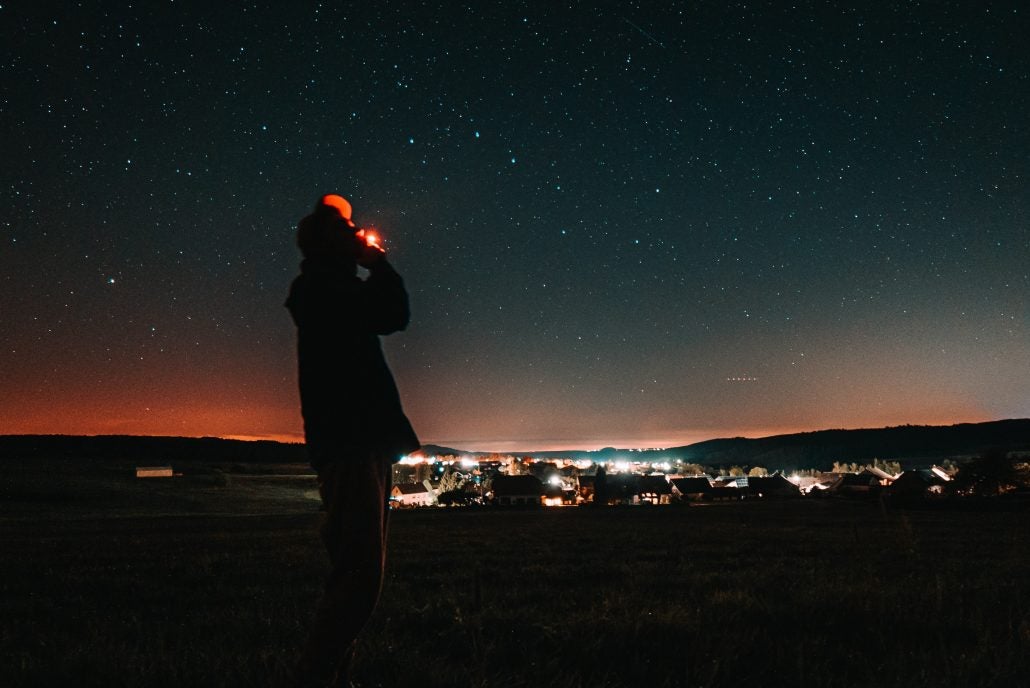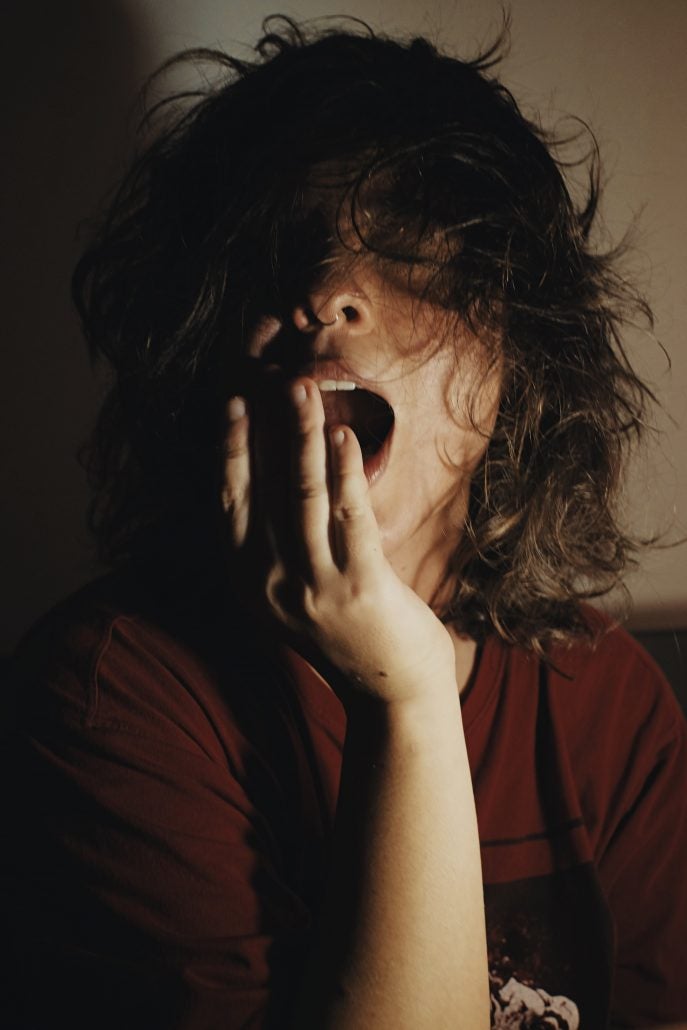Not getting enough sleep can have a devastating impact on your life— from feeling tired and lethargic all day to even more serious mental and physical health issues. But cannabis is increasingly being looked at not only as a sleep aid but also as an alternative to over the counter sleep medication, as anyone who’s had a powerful indica and passed out on the couch can attest to. But what is the relationship between cannabis and sleep, and how can it help you get a better night’s rest? Keep reading to learn more and we’ll even recommend a few of the best weed strains for sleep.
Sleep Issues On the Rise
Around 30% of Canadians struggle with falling or staying asleep, and this number gets higher the older you get, no pun intended. As sleep-related conditions worsen, most people turn to medicine to treat their issues. One of the more controversial remedies is marijuana, which contains compounds that have potential anti-anxiety and analgesic properties. Using weed for sleeping is becoming more acceptable in society, especially as more studies show its effectiveness at promoting relaxation, lessening the time it takes to fall asleep, and relieving pain.
As with any other sleeping aid, you should consult with your physician about starting any new medications or supplements. Weed can interfere with certain medicines and may have unintended consequences if you’re not used to using it for sleep. If your doctor keeps up with the latest medical cannabis studies, they could recommend the right dose and strain to help you get a good night’s rest.
Smoking Weed at Night vs. During the Day
Many people enjoy having a bit of weed before bedtime because it helps them relax and get a better night’s sleep. However, different strains have different effects, with some providing creative inspiration and improving mood, while others encourage relaxation and calm. The reason that different strains have different results is due to their cannabinoid and terpene profiles.
Most people who smoke weed during the day do so because they want to feel energized, invigorated, and inspired, so they gravitate towards strains with these kinds of effects. But the opposite is also true. If you use these strains at night, they could give you an energy boost, making you feel restless and unable to sleep.
That’s why choosing the right weed strain is essential. Most of the popular strains have well-documented effects, so it’s a good idea to start searching there to find the best ones for sleep.
One of the most important considerations for taking weed for a restful night’s sleep is to watch your intake time. If you leave it too late, you may wake up feeling groggy and disoriented in the morning. If you take it too soon, you may end up going to bed too early and waking up before the sun rises.
Edibles are notorious for the sheer range of time they take to produce an effect. One edible may kick in an hour after ingestion, while others take two to three hours to get working. If you plan to use edibles, stick to the same brand, and experiment with different ingestion times and doses to find the perfect one for you.
If you’re planning to smoke or vape your sleepy time weed, a good place to start is around an hour before you get into bed. It’s enough time for the cannabinoids and terpenes to kick in, and they’ll get processed by your liver by the time you wake up.

Indica and Sleep
Most cannabis enthusiasts know the general differences between sativa and indica strains. Sativa is great for daytime use, as it leaves users feeling energized, happy, and motivated. Indica strains, on the other hand, are soothing and relaxing for most people, so they are ideal for a good night’s sleep.
Hybrids are a mix of both sativa and indica strains, and their effects can vary depending on the strain and the person using it. Some may promote good sleep, while others don’t. If you’re not sure about a particular strain, get in touch with BudMail, and we’ll help you choose the right strain for your needs.
There’s a lot of speculation about why different cannabis strains have different effects on sleep. Both sativa and indica strains have wildly varying THC-to-CBD ratios, with some indica strains containing more THC than some sativa cultivars.
One current hypothesis is that indica strains have the right terpene content to promote sleep. In general, myrcene-dominant strains are best for their calming effects, with pinene and caryophyllene close behind. Limonene and terpinolene are more energizing, so be sure to avoid cultivars that contain these compounds if you want to relax.
THC, CBD, and CBN for Sleep
The main active compounds in weed are cannabinoids, though recent studies show that terpenes may also play a role in the effects of a particular strain. The most famous cannabinoids are THC and CBD, but cannabis also contains hundreds of other, lesser-known compounds. These compounds interact with the body’s endocannabinoid system.
The endocannabinoid system works based on two classes of receptors found in different areas of the body. Cannabinoid receptor 1 (CB1) occurs mainly in the central nervous system, while cannabinoid receptor 2 (CB2) occurs on macrophages, B-cells, and T-cells in the immune system and peripheral nerve cells.
In general, THC binds to CB1 receptors, while CBD binds to CB2 receptors. Despite their different binding sites, both of these cannabinoids can affect the quality of your sleep.
THC
THC is the psychoactive compound that induces much of the euphoria associated with a weed high. It also has plenty of secondary effects, including reducing nausea, pain relief, and sedative effect.
Unsurprisingly, THC changes many aspects of our sleep. For one, it may improve breathing during sleep, making it a potential therapeutic compound for sleep apnea. It also decreases the amount of time in REM sleep and increases the amount of time spent in slow-wave sleep.
REM sleep is also known as dream sleep, so consuming THC before going to bed may reduce the amount of time you spend dreaming. If you suffer from nightmares or PTSD, this facet of THC may be incredibly welcome.
CBD
CBD doesn’t affect the brain in the same way as THC, which means that it doesn’t induce the same psychoactive effects. CBD’s main influence on sleep quality is that it reduces anxiety, making it easier to fall asleep.
Despite its reputation as the relaxing cannabinoid, CBD is a wake-inducing agent that helps reduce daytime drowsiness and decreases slow wave and REM sleep. Staying awake during the day and keeping a regular sleep schedule at night are vital for good night-time sleep, and CBD may support this aspect of helping you sleep better.
CBN
CBN, or cannabinol, is a lesser-known but still functionally important cannabinoid. THC converts into CBN when exposed to heat or oxygen, and aged weed tends to have higher CBN concentrations than younger batches.
While CBN may have an impact on sleep, it’s not nearly as well-studied as its cousins. Some very small-scale studies in mice suggest that CBN can prolong sleep time and have a sedative effect when combined with THC, but it’s unclear whether the same effect occurs in humans.

8 Best Weed Strains for Sleep
In general, when you start looking for the best weed for sleep, keep the following guidelines in mind:
- THC-heavy strains promote the best sleep. If you don’t suffer from side-effects like anxiety or get paranoid on THC-dominant strains, these are your best bet for a good night’s rest.
- Go easy on the THC if you suffer from anxiety or PTSD. High levels of THC may worsen existing anxiety or cause anxiety in susceptible individuals. However, don’t use CBD-only strains since they tend to induce wakefulness instead of promoting sleep.
- Remember your terpenes. Try to find strains high in myrcene, caryophyllene, and pinene.
Let’s look at some specific strains that we recommend.
1. Tahoe OG Kush
- Contains limonene, caryophyllene, and myrcene
OG Kush is one of the best-known cannabis strains, and Tahoe OG is a heavier, more robust variety.
Tahoe OG Kush produces profound effects that can be a godsend for people who toss and turn all night. We recommend smoking or vaping an hour before bed, giving the fast-acting strain time to relax your muscles, calm your mind, and get you ready for a great night in.
Since this strain is pretty high in THC, it gets our recommendation as one of the best weed strains for sleep apnea since it can help ease your breathing while you snooze away.
2. Granddaddy Purple
- Contains myrcene, caryophyllene, and pinene
Granddaddy Purple tends to be one of the most popular sleep-inducing pot strains, and with good reason. It’s widely available and contains very high amounts of myrcene. It’s also one of the tastiest strains on the market, carrying hints of berry and grape that make smoking this classic a great experience.
3. God’s Gift
- Contains myrcene, pinene, and caryophyllene
As the name suggests, this strain is a godsend for people who have chronic insomnia. With strong tones of berry and citrus, this strain will gently guide you into some of the most restful sleep you’ve ever had.
4. Sweet and Sour Widow
- THC/CBD balanced
- Terpene profile unknown
If you ask any experienced cannabis enthusiast about which strain is best for sleep, the chances are that they’ll recommend Sweet and Sour Widow if you suffer from anxiety. Unlike THC-dominant strains, which can cause underlying anxiety, this balanced profile contains enough THC to get you sleepy, while the CBD takes the edge off and allows you to drift away with ease.
5. Ogre
- Contains myrcene, caryophyllene, and limonene
Despite the scary name, this gentle giant will guide you into the best night of sleep you’ve had. The THC-dominant profile is mild enough for most people, while the terpenes give this strain a wonderful sweet citrus flavour. The myrcene and caryophyllene will quickly get to work with their sedative effects while still ensuring that you’ll be up and ready for the next day.
6. Northern Lights
- Terpene profile unknown
Northern Lights is a legendary strain that dates back to the mid-’80s. It has a very high THC content, which may not make it suitable for all people. However, if you can handle its punch, this strain will combat even the harshest insomnia and leave you drifting away on a happy cloud.
7. Remedy
- CBD-dominant
- Contains myrcene, pinene, and caryophyllene
Remedy contains almost no THC, which makes it an appealing choice for consumers who don’t like the experience of getting high. CBD-dominant strains won’t ease you into dreamland by themselves, but they can help address other issues, like pain, anxiety, or stress that may be causing you to sleep poorly or not at all.
8. 9-Pound Hammer
- Contains myrcene, pinene, and caryophyllene
Another strain with a scary-sounding name, 9-pound Hammer contains enough THC to knock out even the worst bouts of insomnia. If you’re one of those people whose mind gets racing the moment they get into bed, you’ll appreciate the soothing effects of this strain, which will smash your thoughts away and bring on amazing sleep.
Weed for Sleep: What to Remember
Cannabis can be a viable alternative to over-the-counter sleep medications. In general, indica strains with high concentrations of sleep-inducing terpenes are your best bet. THC appears to be the main compound involved in falling asleep, staying asleep, and changing your sleep cycle. CBD has a more tempering effect, toning down the anxiety-causing issues that many high-THC strains have on susceptible individuals.
Surprisingly, not only the cannabinoids affect sleep quality. Terpenes, often known as flavour compounds, can also have a substantial effect. Some terpenes promote an energetic or euphoric response, while others are better for relaxation. Try to stick to strains containing myrcene, pinene, limonene, and caryophyllene to get the best results.
However, if you struggle with chronic insomnia, sleep apnea, or other severe sleep-related conditions, consult your doctor before turning to cannabis. Many of these sleep disorders have underlying causes that self-medicating might exacerbate. Most doctors in Canada are becoming aware of bud’s health benefits and will usually outline the benefits and downsides of using cannabis to help with sleep.
Once you’ve gotten the go-ahead from your healthcare practitioner, head over to BudMail to browse our wide variety of cannabis products. Whether you’re looking for expert advice or high-quality flower, we have the perfect solution for you.
